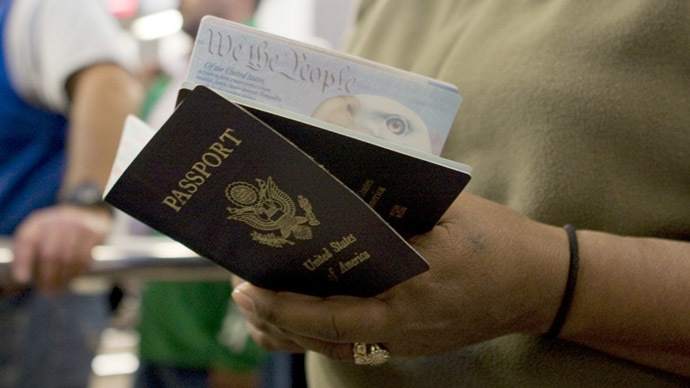On February 2015, Forbes expert Robert W. Wood wrote an article regarding the possibility of passport denial for tax debtors. According to this editorial the IRS and Justice Department cooperate to catch tax contemptuous law violators. They can even have notorious ones arrested when they land on U.S. soil. But some in Congress think more can be done in order to grab people on the move or to prevent them from taking flight in the first place. In 2012, the Government Accountability Office reported on the potential for using the issuance of passports to collect taxes.
The idea has being introduced several times over the last few years, and it is like requiring you to pay all your unsettled issues with parking tickets before you renew your driver’s license or register a vehicle.
The equivalent to this is to restrict passports and travel until you pay the IRS. Several successive proposals have been defeated for now, many people feel that the right to travel is fundamental, essentially constitutional. However, this movement started in 2012, when Sen. Harry Reid (D-Nev.) proposed that if you owe the IRS more than $50,000, you shouldn’t get a passport. (Read Sen. Orrin Hatch’s Memo to Reporters and Editors.)
These exertions transformed into Senate Bill 1813, introduced by Senator Barbara Boxer (D-CA). Mostly it was about highway safety, but would also authorize the federal government to prevent Americans from leaving the country if they owe back taxes. The point is to allow the State Department to revoke, deny or limit passports for anyone the IRS certifies as having a tax debt in an amount in excess of $50,000.
The no-travel, no-passport idea hasn’t become law, at least not yet. But in 2014, Sen. Ron Wyden (D-Ore.) joined the chorus. As proposed, you would still be able to travel if your tax debt is being paid in a timely manner, in an emergency, or for humanitarian reasons. Still, critics noted that it isn’t limited to criminal tax cases or even situations where the government fears you are fleeing a tax debt. In fact, if the bill is passed you could have your passport revoked merely because you owe more than $50,000 and the IRS has filed a “notice of lien” which is a form of security interest granted over an item of property to secure the payment of a debt or performance of some other obligation.
A $50,000 tax debt is easy to currently accumulate. In addition, tax liens are pretty standard. The IRS files tax liens routinely when you owe taxes. It’s the IRS way of putting creditors on notice so the IRS eventually gets paid. In that sense, the you-can’t-travel idea seems extreme, however a far smaller sum of unpaid child support can trigger similar passport action and that is the reason why others attack the proposal as potentially unconstitutional.
On the other hand, some people figure the IRS needs all the help it can get to collect taxes, while others fear administrative glitches and potential administrative nightmares.
The proposed law appears in the pending “Highway Bill” “Moving Ahead for Progress in the 21st Century Act” or “MAP-21”. It would add a new section 7345 to the code entitled “Revocation or Denial of Passport in Case of Certain Tax Delinquencies”.
Tax liens are almost automatic. IRS tax liens cover all your property, even acquired after the lien is filed. The courts use liens to establish priority in bankruptcy proceedings and real estate sales.
The IRS can file a Notice of Federal Tax Lien after:- IRS assesses the liability;
- IRS sends a Notice and Demand for Payment saying how much you owe; and
- You fail to fully pay within 10 days.
A tax lien can be a mistake. In most cases, there’s no mistake and the IRS lien is valid, but sometimes people just need to straighten out a pile of paperwork.
Sources:
Robert W. Wood for Forbes.- (http://www.forbes.com/sites/robertwood/2015/02/05/coming-soon-no-travel-or-passport-if-you-owe-irs/)
http://www.forbes.com/sites/robertwood/
United States Government Accountability Office.- http://www.gao.gov/new.items/d11272.pdf
Sen. Orrin Hatch’s Memo to Reporters & Editors.- http://www.finance.senate.gov/newsroom/ranking/release/?id=d714f27c-9953-46dc-93e2-36377c27e0af
Highway Bill.- https://www.govtrack.us/congress/bills/112/s1813/text
Federal Tax Lien.- http://www.irs.gov/Businesses/Small-Businesses-&-Self-Employed/Understanding-a-Federal-Tax-Lien#Notice
What is a lien.- http://en.wikipedia.org/wiki/Lien#Equitable_lien_.28U.S..29


No comments:
Post a Comment